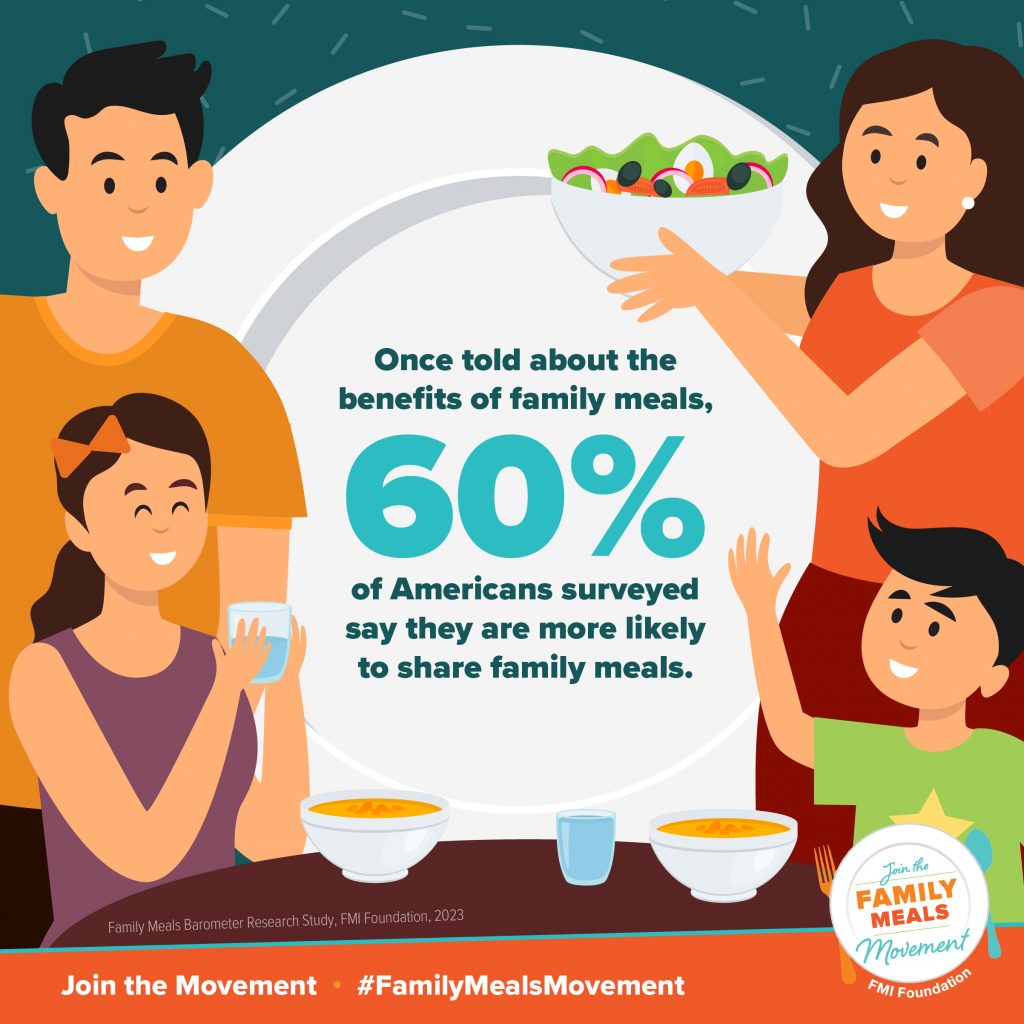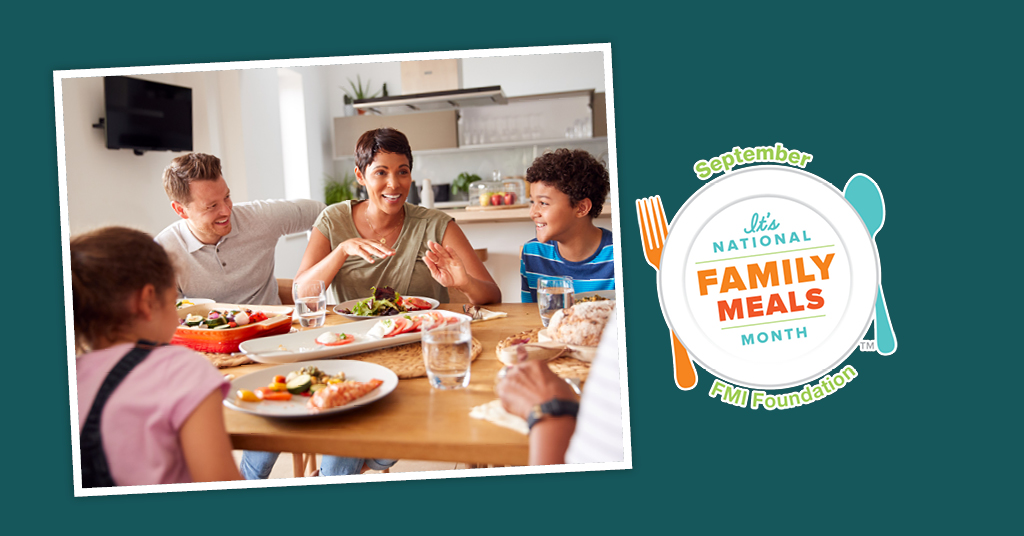When you finish a long day of work, shuttling kids to activities, and running errands, sometimes it’s hard to sit down together as a family for dinner. We all live busy lives, but eating together is worth the effort. Having family mealtime has been shown to provide physical, social, and mental health benefits.
September is National Family Meals Month, which focuses on raising awareness of the many benefits of sharing meals as a family on a regular basis.
Whether you pick up some sides from our deli, whip up a full meal from scratch, or grab some deliciously fresh in-store sushi, you can take advantage of the many benefits of a shared family mealtime experience.
Why are family meals so essential? How can you save time and money planning and creating these special experiences? Here’s what you need to know to make positive changes for your family during Family Meals Month and beyond.
Making Time for Family Meals
Although an evening dinner might be easy to take for granted, there are many benefits of taking the time to share a family meal.
In fact, regular family meals are linked to the kinds of outcomes that we all want for our children: higher grades and self-esteem, healthier eating habits, and less risky behavior. And eating at home can be a win-win for both your pocketbook
and your waistline, with research showing that people who eat more home-cooked meals consume about 130 fewer
calories per day, on average.
The attention children receive at this casual and relaxed gathering can help to create stability, foster self-esteem, and even lead to better grades. Regular family dinners can encourage positive social behaviors like sharing and respect that transfer to adult life.

Try to get kids involved in every part of the process, from picking dinner ideas, choosing recipes, to prep and cooking, and of course, enjoying the meal together.
Try a Monthly Meal Planner to Save Time and Money
If getting the family around the table for dinner is hard due to finances, being prepared ahead of time can help. When shopping, try to pick up flexible staples like rice, beans, and other non-perishables you can use in all types of meals.
Shopping is only half the battle, planning meals ahead of time can be tedious, but with the right tools, it can become a breeze. A monthly meal planner can help when it comes to getting dinner on the table. In addition, it can also help save money on grocery shopping by avoiding unnecessary or wasteful purchases.
Don’t forget, you can also order your groceries online and have them delivered right to your front door, adding incredible convenience when you’re dealing with a hectic schedule.
Cultural Connections
Family mealtime is not only about the food; it’s also an opportunity to pass down cultural heritage and traditions. Sharing traditional dishes and recipes that have been handed down through generations can be a powerful way to connect with your roots and instill a sense of cultural identity in younger family members. Exploring different cuisines together can broaden everyone’s horizons, promoting an appreciation for diversity and an understanding of various cultures. Through these culinary journeys, family members can learn about their ancestors’ ways of life and how their cultural background contributes to their identity. These connections to heritage can help children develop a sense of pride and respect for their family’s history while embracing the multicultural world around them.
Remember, family mealtime is not just about the food on the table; it’s about nourishing the soul, creating memories, and fostering connections that last a lifetime. As you celebrate National Family Meals Month this September and beyond, take the time to savor these moments and recognize the profound impact they have on your family’s well-being and sense of unity.
